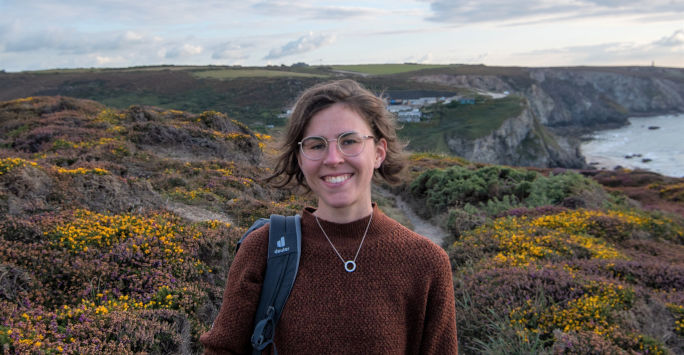
Student Spotlights pass the mic to our student doctors, to hear their take on their School experience and shine the light on a particular role, team or pathway through the School of Medicine.
This week we hear from Year Five Student Doctor and former President of the GP Society Katie Winstone about her experiences on GP placements and how they have helped her to grow as a future medical practitioner.
What is it that first attracted you to a career in General Practice?
My initial impression of General Practice was that it offered the perfect opportunity to meet, speak with and help people, whilst also gaining and applying knowledge of a wide range of health issues.
The term ‘expert generalists’ is thrown around and I think is certainly successful in highlighting the diversity of patients and presentations you would help to manage.
The community aspect of the role, helping to promote healthy changes, primary prevention of disease, rather than treatment of established health problems in secondary care, is a part of the role which has personally interested me.
This is certainly an appealing aspect of the speciality for me, especially as increasingly complex conditions are now being managed in primary care. Additionally, there are ever-increasing opportunities to specialise as a GP, allowing GPs to pursue their interests.
How does the MBChB programme at Liverpool support this as a path?
The School of Medicine has integrated a lot of general practice into the curriculum. The long-standing CCT sessions led by GPs are always one of the more popular timetabled sessions for students, and these have been increased along with enhanced induction before our GP placements.
I also know how closely the School of Medicine works with the GP tutors who host students at their general practices for placement.
The MBChB programme has always been a keen supporter of the University of Liverpool GP Society, a medical society keen on highlighting the fantastic aspects of the careers. The society also offers both academic and interest lectures, charity events and medical courses throughout the year.
What has been the highlight of your time spent on GP placements?
GP placements are undeniably a great place to learn as a student doctor. Often there are opportunities to take multiple histories, examine patients, present cases and discuss management. On my Third Year GP placement, I was allocated a room and patients to see each day.
As cliché as it sounds, it was the first time since starting medical school that I had the feeling that one day I might actually be a doctor.
What surprised you about life at a GP practice?
It surprised me how varied the job is, the flexibility it offers and how different the working atmosphere is compared with a hospital job. There are no ward rounds or post-take meetings! The practice is a unit and there are many other staff members, such as advanced nurse practitioners, administration, midwives, other than GPs that work together.
What did you find challenging, and how did you overcome it?
Since the COVID-19 pandemic, it is fair to say that GP practices have had to adapt, as have students. Direct patient contact has become more infrequent in general practice, changing the student experience. However, my GP tutor was very helpful at involving me in telephone consultations and encouraging me to see any of the patients that came in for appointments that required a face-to-face consultation. It is easy to forget that ongoing chronic disease management is continuous, as well as the new patients and presentations. I have always found there is plenty to do. If not, I find that, if asked, patients suffering with chronic health conditions are happy to sit and educate me about their experiences and challenges.
There is no person better or more memorable way to learn about a condition than the patient themselves.
What resources, events or activities are most useful for students interested in General Practice?
The RCGP is an excellent organisation that is always keen to have students involved. I have had some great experiences at their events. Everyone is very friendly and just want to enhance our future careers as GPs. They have regular meetings locally and in London. Attending University of Liverpool GP Society events or getting involved on the committee is also a great way of getting some experience and something for your portfolio.
What’s one piece of advice you have for student doctors keen on becoming a GP?
Like any career choice, don’t jump to any rapid conclusions. Try to educate yourself about the career as a GP, get involved in placement activities and speak to GPs about their experience. I would encourage students to pursue all interests in medicine. Afterall, any speciality knowledge is useful as an expert generalist!
Discover more
- Interested in General Practice? Why not join Liverpool GP Society (GPSoc)? Take a look at their page on the Guild website and follow them on Instagram, Twitter and Facebook.
- Liverpool Student Doctors can find an overview of all Medical Societies on the student intranet and on the Guild website.